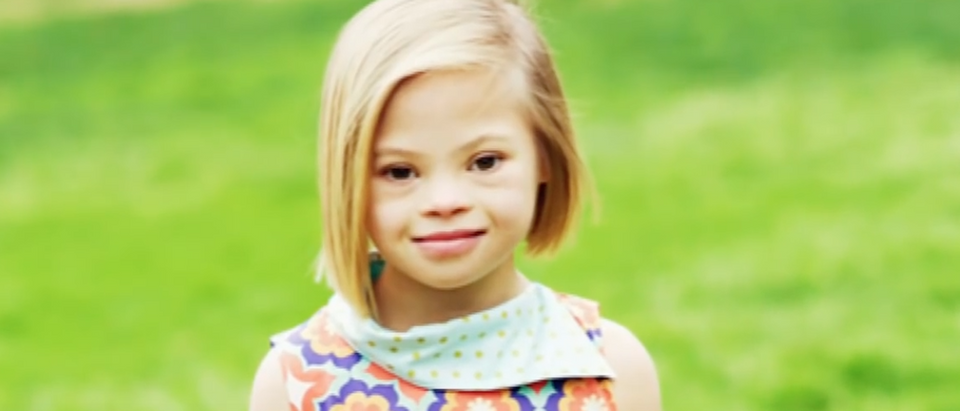A CBS article reported Monday that the number of babies born in Iceland with Down syndrome is decreasing, when in actuality the country’s abortion rate for fetuses diagnosed with the genetic condition is 100 percent.
CBS touted the fact that few countries “have come as close to eradicating Down syndrome births as Iceland,” and reported that almost all women who receive a positive test for the disease abort their child. Icelandic abortion laws permit a woman to end her pregnancy after 16 weeks if the tests show that her baby will have a deformity. Iceland’s 1975 law also cites difficult social reasons, including giving birth in quick succession, poor living conditions, inability to care for a child, and “other reasons” as acceptable justification to legally abort a baby after 16 weeks.
Since Iceland began prenatal testing in 2000, the government has mandated that all pregnant women be informed about screening for abnormalities — and while it does not require that women receive tests — almost all pregnant women do. The doctors administer a blood test and ultrasound in a Combination Test to determine the likelihood that the fetus will have a genetic disorder.
“Babies with Down syndrome are still being born in Iceland,” Hulda Hjartardottir, head of the Prenatal Diagnosis Unit at Landspitali University Hospital, told CBS News. “We try to do as neutral counseling as possible, but some people would say that just offering the test is pointing you towards a certain direction.”
Only one or two children are born with Down syndrome each year in Iceland, however, usually as a result of inaccurate test results. Since 2008, every unborn Icelandic baby diagnosed with Down syndrome has been aborted, according to Down Pride advocacy group.
Thordis Ingadottir, who gave birth to a Down syndrome child in 2009, was told she had one in 1,600 chance of having a baby with the disease and advised that her child would not have the genetic condition. Three Icelandic babies were born with Down syndrome in 2009, “quite more than usual,” Ingadottir said. “Normally there are two, in the last few years.” She has since become one of Iceland’s only Down syndrome activists.
Icelandic photographer Sigga Ella conducted a photo series called “First and foremost I am” of 21 Down syndrome children and adults in an attempt to normalize them and show that they should not be killed simply for their extra chromosome.
“My understanding is that we have basically eradicated, almost, Down syndrome from our society — that there is hardly ever a child with Down syndrome in Iceland anymore,” said geneticist Kari Stefansson, the founder of deCODE Genetics. Iceland’s high termination rate reflects a “relatively heavy-handed genetic counseling,” according to Stefansson. “I don’t think there’s anything wrong with aspiring to have healthy children, but how far we should go in seeking those goals is a fairly complicated decision.”
After a Dutch newspaper reported that “a child with Down syndrome costs 1 to 2 million Euros,” Patrick Willems — CEO of the Belgian lab “Gendia” — said that “preventing the birth of 50 babies with Down syndrome will offset the costs of fully implementing the Nipt [non-invasive prenatal testing] into Dutch public healthcare.”
Other nations have followed suit with their health care treatment of unborn Down syndrome babies. As of 2015, France had a 77 percent and Denmark a 98 percent termination rate for Down syndrome babies. Britain also has a 90 percent abortion rate for Down syndrome babies, according to BBC.
“This is your life — you have the right to choose how your life will look like,” Helga Sol Olafsdottir — a counselor at Landspitali University Hospital — said she tells pregnant women deciding whether to abort a child that will have disabilities. “We don’t look at abortion as a murder,” Olafsdottir added. Seeing aborting babies with defects as murder is “so black and white … Life isn’t black and white. Life is grey.”
All content created by the Daily Caller News Foundation, an independent and nonpartisan newswire service, is available without charge to any legitimate news publisher that can provide a large audience. All republished articles must include our logo, our reporter’s byline and their DCNF affiliation. For any questions about our guidelines or partnering with us, please contact licensing@dailycallernewsfoundation.org.


